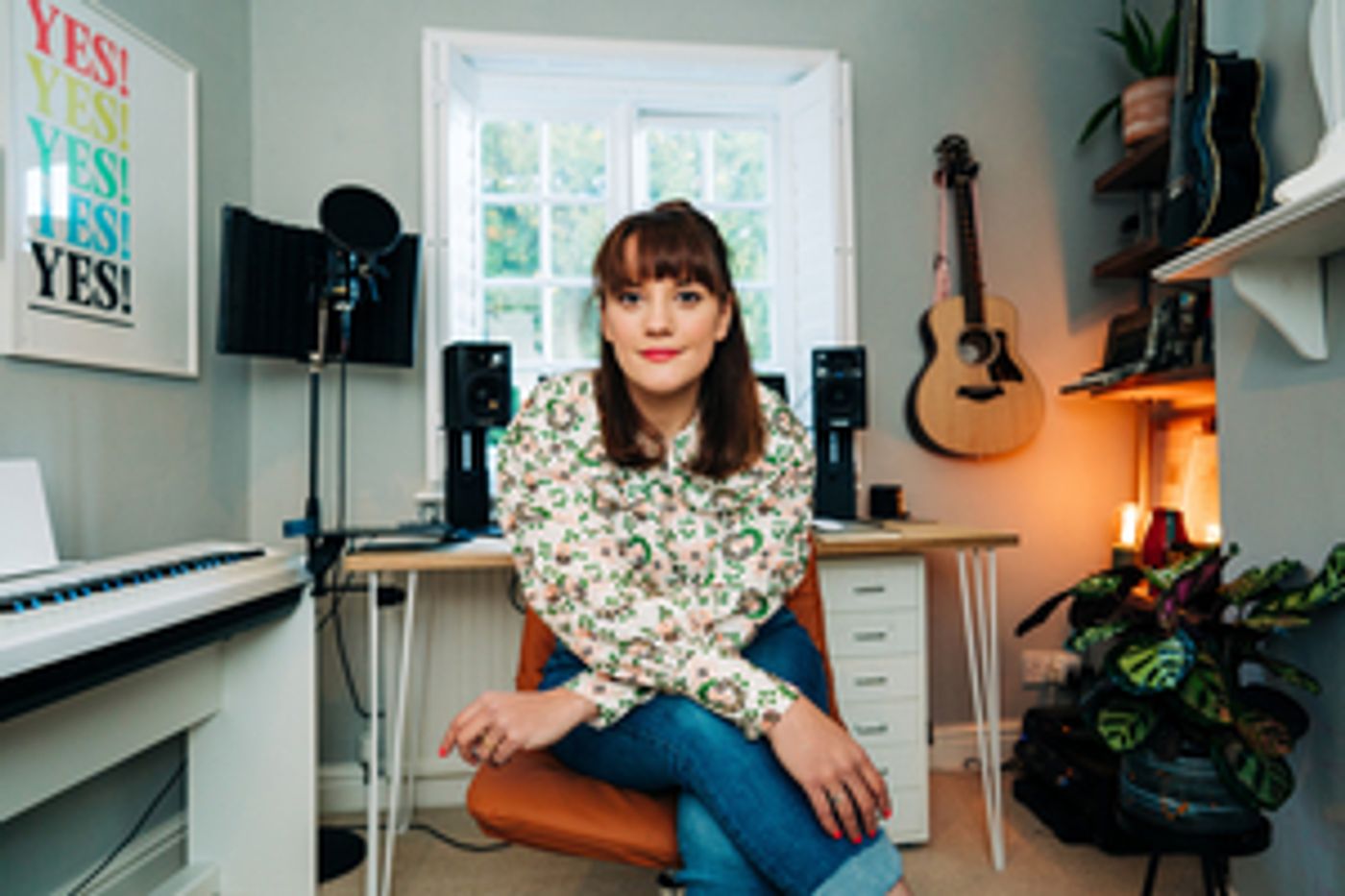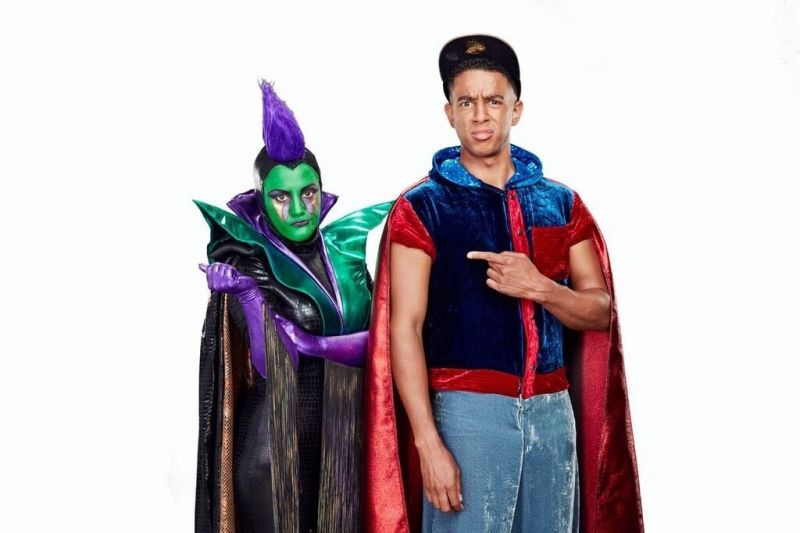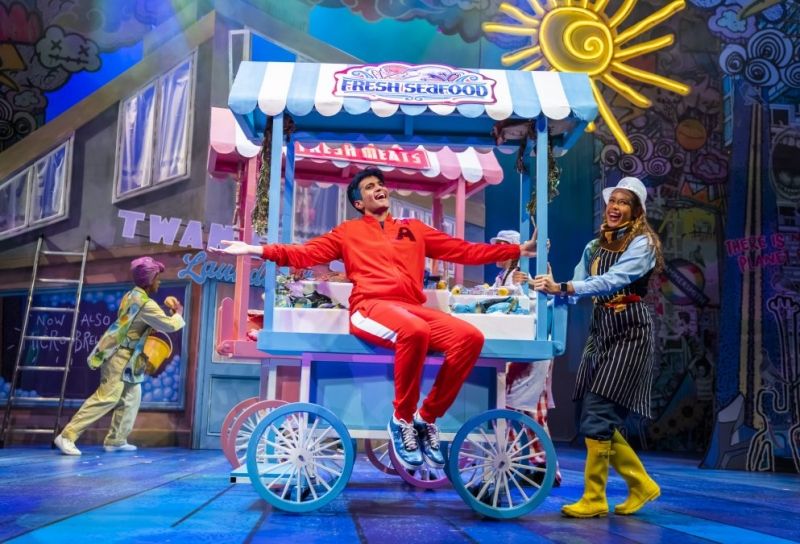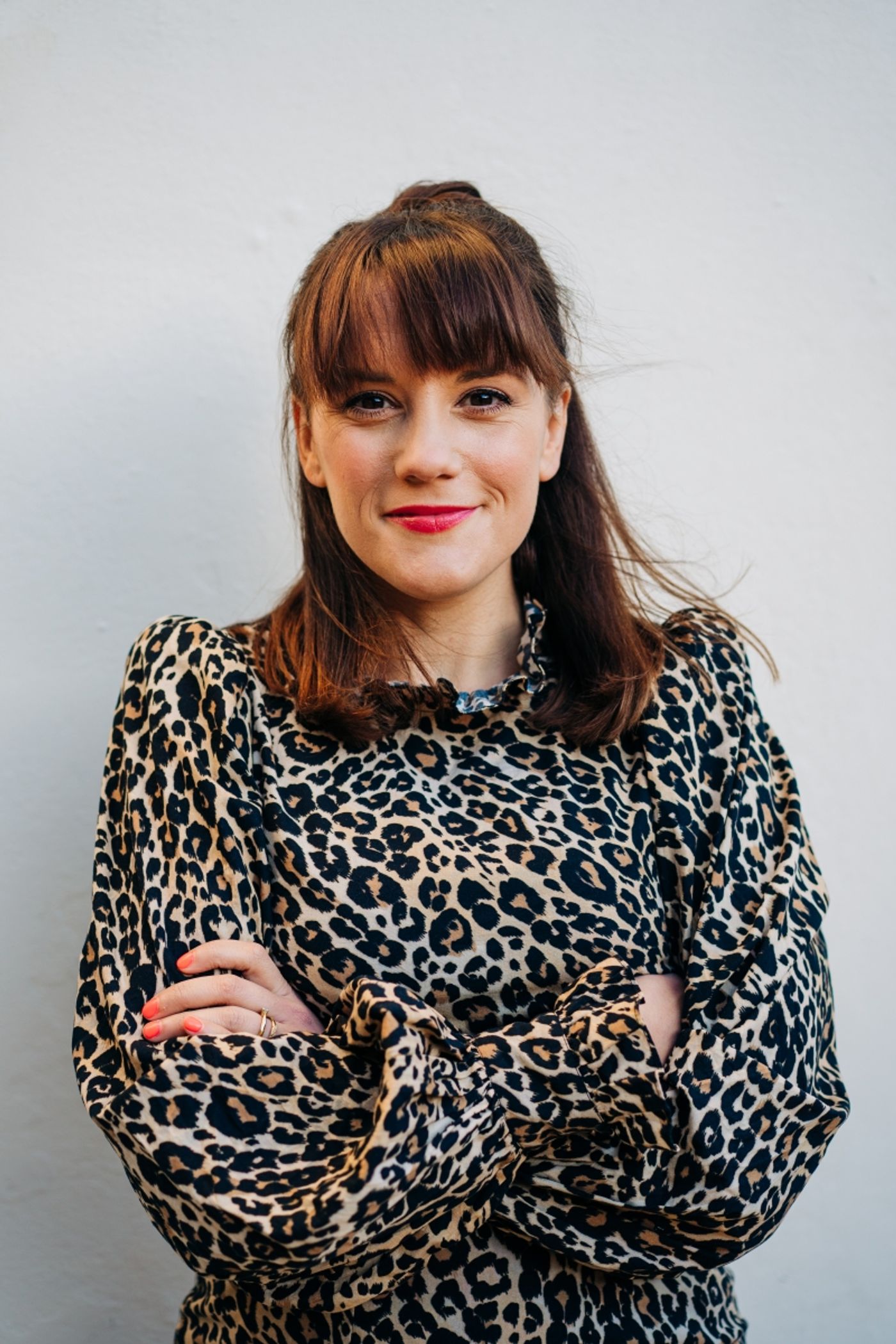Interview: Vikki Stone Chats ALADDIN at Lyric Hammersmith
The award-winning comedian, actor and composer discusses the differences between writing and performing in a panto

Vikki Stone is an award-winning comedian, actor and composer. She usually spends the festive season on stage in a panto. But this year, she's the composer of Aladdin, currently playing at the Lyric Hammersmith. We spoke with Stone about her involvement in the production.
How has your 2021 been compared with 2020?
It's been busy, you know, with putting on a show. This year, theatres are coming back to life, but theatres are not in the same health as when we left them in 2020.
I've been involved in lots of productions, some of which got cancelled; it's really challenging. Most organisations now have fewer staff behind the scenes.
A lot of the technical freelancers now do non-theatre stuff. They left the sector to do other work and haven't returned. And while there is this joy of theatre coming back to life, it's not the same.
How did you get involved in the Lyric Hammersmith's panto?
I was asked to do it in October 2019, so to finally have it open, it's like, "Oh my God, we're finally doing this", this project that's been on my slate for so long. So it's wonderful that it's finally up and running.
But there's also now a feeling at the back of my mind wondering, "Are restrictions going to change?", "Are we going to get to January?".
What was your first experience of panto?
I went to the pantomime in my local town, where I grew up in Rugby. We didn't have a professional one in town, but we watched the local community pantomime. I really enjoyed that. Pantomime was also my first job, actually, a rock 'n' roll panto, which was ideal for me.
It wasn't until 2016 when I went in to see a casting team thinking about having a woman as Abanazar at the Lyric. So I went in and spent two years at the Lyric playing the baddie, and I really enjoyed it. So I've now been the baddie four times.
I'm not in a show this year because I have other things I've working on, and I find myself missing the character; I just want to go on and do some shouting!

in a previous production of Aladdin
What was your approach when you came to write Aladdin?
I've been in Aladdin two or three times, so I know it quite well. It makes a good panto because the stakes are quite high - what the characters want is really clear.
Some of the pantos are not quite as big. So, for instance, with Jack and the Beanstalk, the baddie is actually a henchman. You've got a giant which is the most legendary, but you never get the same stakes. With Abanazar, you know what he wants. He's even willing to kill Aladdin to get the thing he wants.
The first thing I did was that I went back to the original story from 1001 Arabian Nights and a relatively new translation of the book. There are so many elements to the story that I thought it was time to check to see which aspects have come from Disney and panto.
One of the things I discovered when reading the new translation was that there are unlimited wishes, not three. The three wishes come from the Disney adaption.
Aladdin lives in poverty, which means he just wishes for food for ages; he doesn't think beyond that for quite a long time. So I wanted to include that element of unlimited wishes, and in my show, Aladdin wishes for Nando's!
How have performances been going so far?
This is my first time doing a full production on the other side of the creative team. Panto is really, really fun, but it turns out there's a lot more pressure offstage with all the technical aspects that must be just right, like the illusions etc. That surprised me. It's very focussed; it's got to be very tight. All of that stuff comes together so that the cast just need to have fun on stage.
When you're in a show, I don't think you notice what the creative team is doing because much of that work happens without your knowledge. There are meetings and sessions that don't involve you with discussions about how someone's costume is fastened, or whether you got certain details right for it to be fun, joyful and carefree for the cast. So that was certainly hard work for me.

at the Lyric Hammersmith
Why do you think audiences love pantomime so much?
The interesting thing about panto is that I found out it's only really done here and in South Africa. I remember once trying to explain panto to a Belgian person and, well, when you try to explain it cold, it just sounds mad! The fact that it's passed on through generations so that you know what to do and what to say is so foreign to them.
There's something about the freedom to be involved too. Theatre can be quite a daunting place for families. It's a formal setting in the way the seats are. We sit down, we are quiet, watch the thing, clap, and go home, which isn't relaxing for some people.
Panto is a type of art form with relaxed performances; by its very nature, every performance is a relaxed performance. As a result, I don't think any other form of art brings in such a wide audience.
Are you allowed to tell us about any of your other writing projects that are preventing you from being in panto at the moment?
I'm working on a TV show which I can't speak about, we start filming in 2022, and there's also two musicals - one is finished, one is not! - but that's all I can say at the moment.
With the recent passing of Stephen Sondheim, what did his work mean to you personally?
It's very sad, and it took me a while to process. Sondheim's work is obviously brilliant, and it's impossible to be in musical theatre without coming across his work.
Sweeney Todd is my absolute favourite show of all time. I've been in it once, and I'd like to do it again, at least twice: once as Mrs Lovett - one of the best roles ever - and I'd also quite like to do a gender-swapped version and play Sweeney Todd!
I have been thinking, though, about how there are all these stories about how Oscar Hammerstein mentored Sondheim and Sondheim mentored Jonathan Larson and Lin-Manuel Miranda; passing down ideas and helping each other through.
My heart sinks a little when I think about that because there are no women there. There's no one mentoring female composers, and then when you see someone like Sondheim die, I don't think there will be many opportunities for other people to be like him. He was very much of his time.

We don't support composers very much, to the point where many cannot even begin to sustain a career to allow you to have more than one show produced.
Sondheim's death marks the end of an era where a composer could have multiple shows produced. He's one of the best composers of all time, but as a society, we make it hard for composers to be heard.
If "another Sondheim" came along, they might not get the support they need or the mentor they need to guide them through the process for us to benefit from their craft. It's sad. What does this mean for the future of musical theatre?
If you had one tip for someone writing their first pantomime, what would it be?
The story is the main thing because lots of chaos and funny will come from the cast. I'm a comedian, and I could write a lot of witty one-liners, but I think it's important to make sure the story is there.
Which character from your production of Aladdin would you most and least want to have round for Christmas?
I always want to spend time with Abanazar. It was impossible to write Abanazar as anything else than the voice of my own Abanazar. I love my take on Abanazar - so egotistical, I know! So any excuse to spend time with them would be great.
The one I'd least like to spend Christmas with is tough because I love all the characters, but I suppose it would have to be the emperor who is loosely based on Boris Johnson...
Why should people come to see Aladdin at the Lyric?
People should come and see this version of Aladdin because I think it could be the start of where pantomime could head in the future.
Pantomime, by its very nature, can be problematic. Take Aladdin, where there are many productions crammed full of cultural appropriation - things we really need to be knocking on the head. But, instead, we use the excuse of "it's tradition" to get away with all sorts of stuff in panto that we shouldn't be doing on stage.
I hope that I've retained more of the fun stuff about panto and disposed of the stuff that doesn't serve us anymore, the stuff that isn't inclusive. I hope that I've achieved writing something that feels fresh and is heading in the right direction of where panto should be going.
Aladdin at the Lyric Hammersmith Theatre until 2 January 2022
Photo credit: Alice Boagey and Tristram Kenton
Videos

